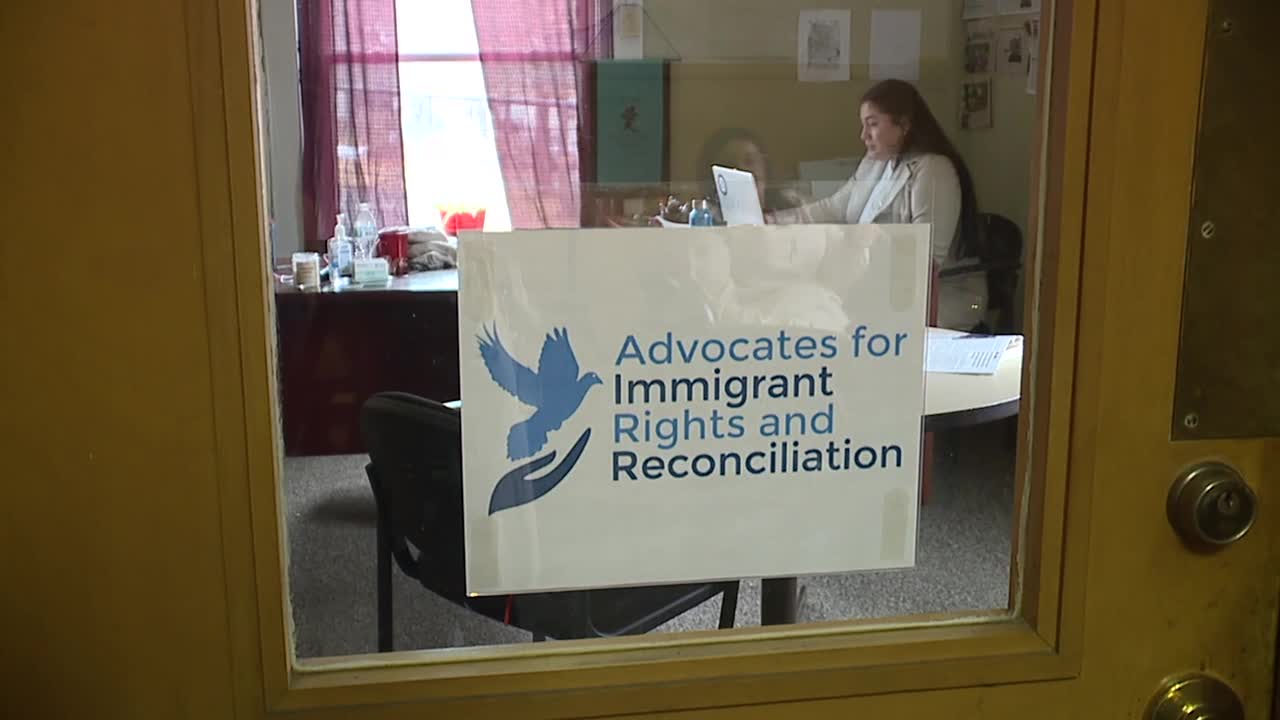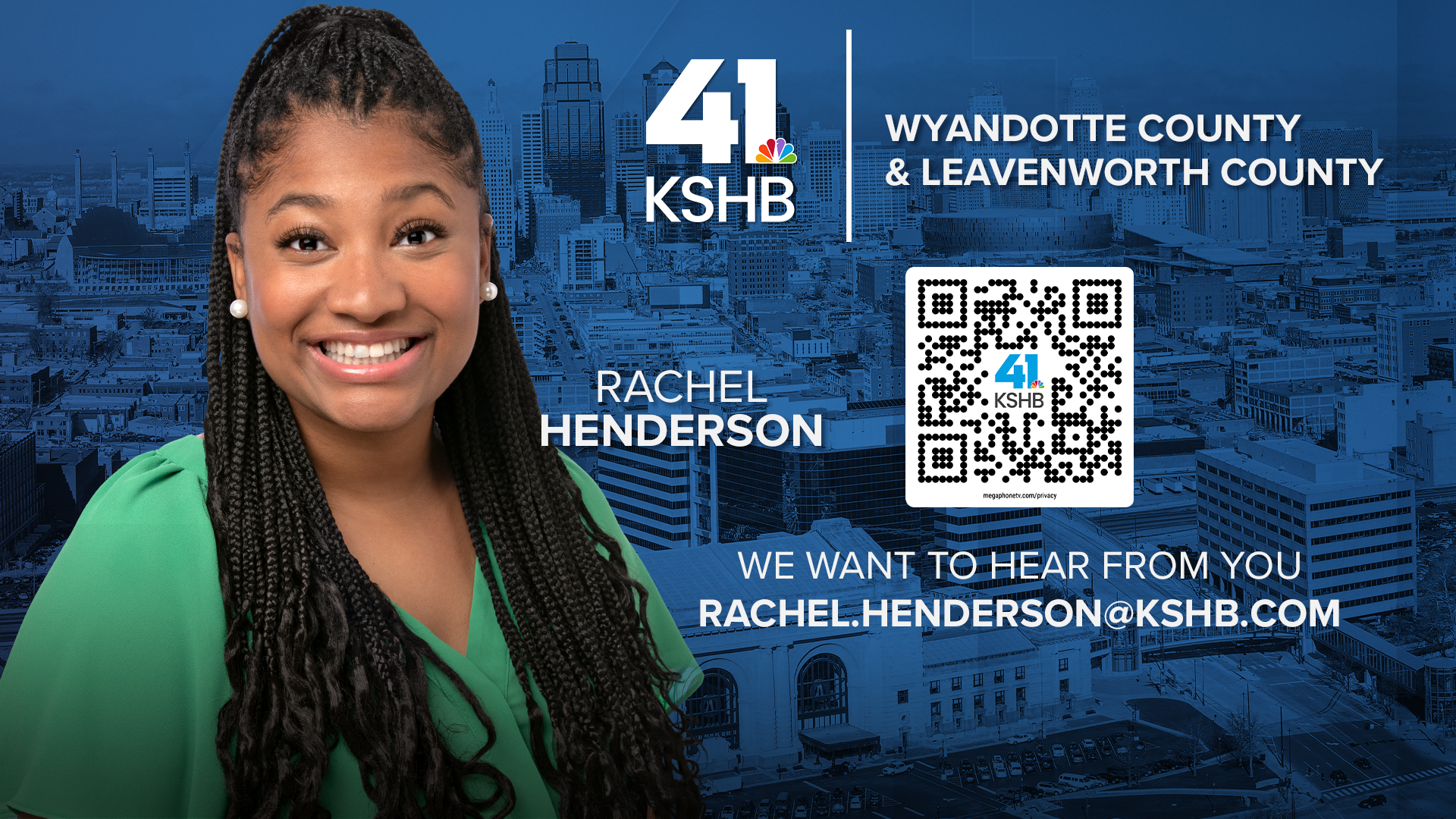KSHB 41 reporter Rachel Henderson covers neighborhoods in Wyandotte and Leavenworth counties. Share your story idea with Rachel.
—
Wyandotte County residents will have the opportunity to meet face-to-face with local candidates Wednesday in the Argentine neighborhood in Kansas City, Kansas.
The event is part of ongoing efforts to address language access barriers ahead of the November 4 general election.
The candidate meet and greet will be held from 7 p.m. to 8 p.m. at the South Branch Library, 3104 Strong Ave.
The free event is sponsored by several organizations, including Advocates for Immigrant Rights and Reconciliation (AIRR), the League of Women Voters of Johnson County, and Alpha Kappa Alpha Sorority, Inc.'s Mu Omega Chapter.
Spanish interpretation will be available.
Invited candidates include those running for Mayor/CEO, Unified Government Commissioner At-Large District 2, and candidates for UG commission seats in Districts 1, 5 and 8.
Candidates for spots on the Board of Public Utilities, KCK Public Schools board and Wyandotte County Sheriff are expected.
The event aims to create a more accessible environment for voters in the diverse Argentine neighborhood.
"It's a little different. It's not quite in a town hall setting where it can be a little intimidating," said Melissa Mendoza, AIRR's voter engagement core team leader, who has worked with the organization since January.

The event comes as language access remains a hot topic in the metro area.
Groups including AIRR and ACLU Kansas rallied in 2024 to get Spanish language ballot materials in Wyandotte County.
The county doesn't meet federal requirements under the Voting Rights Act.
Similar efforts have been underway in Johnson County, where Roeland Park has been pushing for Spanish voting materials to better serve its diverse community.
Wyandotte County Election Commissioner Michael Abbott explained that the county relies on federal legislation to make determinations about language access.
Thresholds set by the U.S. Census Bureau every five years.
Counties must provide bilingual voting materials if more than five percent of voting age citizens are limited-English proficient, or if more than 10,000 voting age citizens are limited-English proficient.
Additionally, the rate of voting age citizens who are limited-English proficient and have less than a fifth grade education must be higher than the national rate.
"As reported by the US Census Bureau in 2021, there are 6 counties in Kansas who currently meet one or both thresholds: Finney, Ford, Grant, Haskell, Seward, and Stevens counties," Abbott wrote in an email. "Wyandotte County does not meet one or both criteria as established by the Voting Rights Act at this time, but it is possible that after the next Census this could change."
Despite about 27% of Wyandotte County residents speaking Spanish at home, according to census data, the county still doesn't qualify under the federal requirements.
"I think having voter materials in multiple languages and not just English would have a huge impact on our community," said Reverend Carter Ellis, executive director of The Hub Argentine, a nonprofit organization serving the area.

Ellis, who has lived and worked in Argentine for the past five years, describes the neighborhood as incredibly diverse and includes people from across the world.
Abbott noted that the election office's budget is funded through the Unified Government, and the office handles all operations in-house, including programming, testing and proofing.
While he doesn't have a specific cost estimate for printing Spanish ballots, he said the increase would primarily involve printing costs and operational changes needed for successful implementation.
"We're all a community together, and we should all be there to support each other," Mendoza said.
The Wednesday event represents what Ellis calls a "relational" approach to civic engagement.
"Having relational events, I think, is really the bridge to having a deeper understanding for why it matters," Ellis said.
Both Ellis and Mendoza remain committed to bridging gaps in their community so all residents feel included in the democratic process.
"Our votes and our voices do have power, and we can use that to make lasting change in our community," Mendoza said.
This story was reported on-air by a journalist and has been converted to this platform with the assistance of AI. Our editorial team verifies all reporting on all platforms for fairness and accuracy.
—





